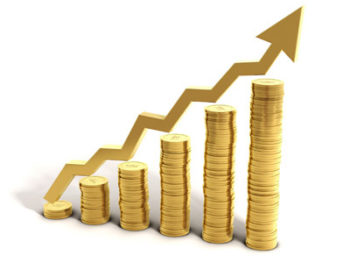
The National Bureau of Statistics (NBS) says the Consumer Price Index, which measures inflation, increased by 18.72 per cent (year-on-year) in January from 18.55 per cent recorded in December, 2016.
The CPI, which measures the average change over time in prices of goods and services consumed by people for day to-day living, is 0.17 per cent points higher from the points recorded in December.
A report released by the NBS in Abuja on Wednesday noted that increases recorded in all Classification of Individual Consumption by Purpose divisions that yielded the Headline Index.
It said said, “Communication, Restaurants and Hotels again recorded the slowest pace of growth in January, growing at 5.1 per cent and 8.4 per cent (year-on-year) respectively.
“However, the faster pace of growth in headline inflation, year -on- year, were bread and cereals, meat, fish, oils and fats, potatoes, yams and other tubers as well as and wine and spirits.
“Also, clothing materials and accessories, electricity, cooking gas, liquid and solid fuels, motor cars and maintenance, vehicle spare parts and fuels and lubricants for personal transport equipment, passenger transport by road.’’
On a month on month basis, the report stated that headline inflation was driven by passenger transport by air, fuels and lubricants for personal transport equipment and liquid fuels.
The report also stated that the headline inflation was driven by cooking gas, oils and fats, fruits, milk, cheese and eggs, fish, meat and bread as well as cereals.
“The Food Index increased by 17.82 per cent (year-on-year) in January, up by 0.43 per cent points from rate recorded in December 2016 (17.39) per cent.
“During the month, all major food sub-indexes increased, with Soft Drinks recording the slowest pace of increase at 7.8 per cent (year on year).
“Price movements recorded by All items less farm produce or Core sub-index rose by 17.90 per cent (year-on-year) in January, down by 0.20 per cent points from rates recorded in December 2016 (18.10) per cent.
“During the month, the highest increases were seen in Housing, Water, Electricity, Gas and Other Fuels, Education and Transport growing at 27.2, 21.0 and 17.2 per cent respectively.’’
On a month-on-month basis, the report further stated that the Headline index increased albeit, at a slower pace in January 2017.
It stated that the index increased by 1.01 per cent points in January, 0.05 per cent points from 1.06 per cent rate recorded in December 2016.
It said, “It should be noted that the Headline Index is made up of the Core Index and Farm Produce items. As Processed Foods are included in both the Core and Food sub-indices; this implies that these sub-indices are not mutually-exclusive.’’
Meanwhile, the report stated that Urban index rose by 20.31 per cent (year-on-year) in January from 20.12 per cent recorded in December, and the Rural index increased by 17.34 per cent in January from 17.20 per cent in December.
It said, “On month-on-month basis, the urban index rose by 1.03 per cent in January from 1.08 per cent recorded in December, while the rural index rose by 1.00 per cent in January from 1.04 per cent in December.”
The construction of the CPI combines economic theory, sampling and other statistical techniques using data from other surveys to produce a weighted measure of average price changes in the Nigerian economy.
Key in the construction of the price index is the selection of the market basket of goods and services.
Every month, 10,534 informants spread across the country provide price data for the computation of the CPI and the market items currently comprise of 740 goods and services regularly priced.